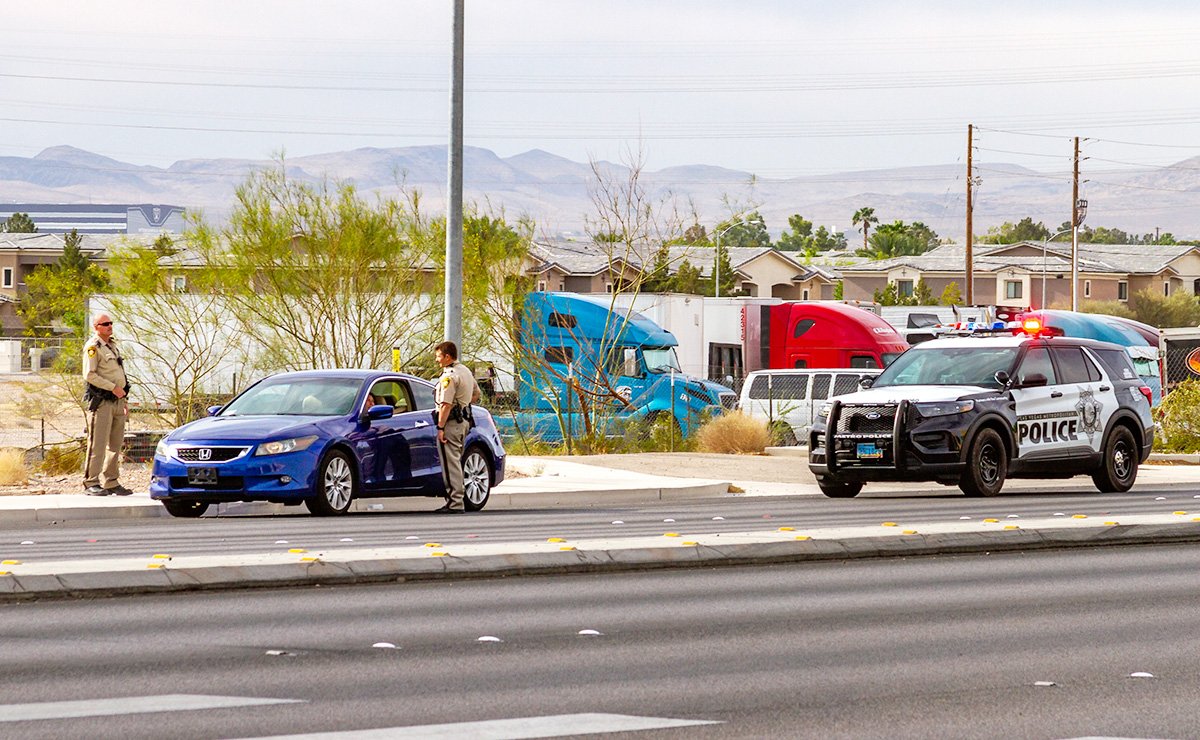<!–*/ */ /*–>*/
| Stark statistics bring speeding epidemic into sharper focus |

Traffic deaths have surged during the pandemic. The latest numbers from federal officials show a 10.5 percent increase during the first quarter of 2021 over the previous year, a rise that comes even as the overall number of vehicle miles driven has fallen.
Speeding motorists have been identified as a prime culprit of that increase. Motorists started speeding at new levels during the pandemic, and haven’t slowed down even as traffic approaches pre-pandemic levels.
New data from traffic-analytics company Arity brings that driver behavior into sharper focus: the company says that today, nearly 1 in every 20 miles driven occurs at speeds greater than 80 mph. Time spent over 80 mph remains approximately 10 percent higher than in 2019. Forty-two percent of the miles driven at speeds faster than 80 mph occur at night, according to the Arity report, entitled “Life In The Fast Lane,” which explores speeding behaviors during the pandemic, broader changes to commuting patterns and general travel trends.
The speeding statistics are damning, and dovetail with reports from safety advocates and first responders, who have sounded the alarm on increases in speeding tickets issued, traffic crashes and increases in fatalities since the early days of the pandemic.
In an episode of the Shift mobility podcast this year, Jonathan Adkins, executive director of the Governors Highway Safety Association, noted the rise in speeding not only corresponded with the pandemic, but with a decline in traffic enforcement.
The consequences became more apparent in July, when NHTSA said an estimated 38,680 people died in traffic crashes in 2020, a 7.2 percent increase from 2019 and the highest total in 13 years. Based on the first-quarter estimates, 2021 looks to be worse.
A stark reminder that the pandemic’s death toll includes those falling victim to America’s unforgiving, speed-stricken roadways.
— Pete Bigelow
What you need to know
Ford, Argo AI to launch autonomous delivery service with Walmart Ford Motor Co. and its partner Argo AI will soon launch an autonomous-vehicle delivery service with retail giant Walmart in three U.S. cities, the companies said Wednesday. The service, which will begin this year in Miami, Washington and Austin, Texas, will use Ford Escape hybrid test vehicles equipped with Argo technology to deliver Walmart orders to customers. The announcement comes nearly three years after the companies launched a pilot program in Miami to explore use cases for self-driving vehicles. A spokesman said the service will launch at one store in each city, where customers will be able to receive deliveries if they live within “defined service areas” that will expand over time.
Rivian gets U.S. regulatory approval to deliver EVs to customers; production ramps up Rivian Automotive Inc., the electric vehicle maker backed by Amazon.com Inc. and Ford Motor Co., says it has received full regulatory certifications and can start delivering its debut EV to U.S. customers. Rivian is seen as a front-runner in the pool of startups seeking to catch up with Tesla, the market incumbent. Rivian has raised more than $10 billion from investors including Amazon, Ford, T Rowe Price and Fidelity. Last month, Bloomberg reported Rivian had filed confidentially for an initial public offering and was seeking a valuation of about $80 billion. CEO RJ Scaringe tweeted on Tuesday that the company had built its first production vehicle destined for a customer, a battery-electric pickup called the R1T.
GM tells some Bolt owners to park 50 feet away from other cars General Motors urged some owners of Chevrolet Bolt electric cars to park and store the vehicles at least 50 feet away from other cars to reduce the risk that a spontaneous fire could spread. The Detroit automaker has recalled all of the roughly 142,000 Bolts sold since 2016 because the battery can catch fire. GM has taken a $1.8 billion charge so far for the cost of the recall and has been buying cars back from some disgruntled owners. The new advice is likely to rankle owners who are already limiting their use of the Bolt to avoid overheating the battery and risking a fire. The parking guidance is especially difficult for owners in urban areas. GM has confirmed 10 fires.
Roundup
Lucid says the launch edition of its Air electric sedan has an EPA-rated range of 520 miles.
Mobileye unveils six-passenger, electric autonomous vehicle that it will use for driverless ride-hailing service.
Chinese e-commerce giant Alibaba Group invests in self-driving technology developer DeepRoute.
Sony has partnered with the German supplier Elektrobit to transform the cabin into a new entertainment space.
Workhorse Group voluntarily dismissed its legal challenge against the U.S. Postal Service’s move to award Oshkosh Defense a multibillion-dollar contract for delivery vehicles.
GM invests in Oculii, a radar software maker for self-driving cars.
Apple’s watch software chief takes over self-driving car project.
The plan to expand electric vehicle charging to underserved areas must first overcome a host of obstacles that have discouraged private investment in more-equitable charging networks.
Brain food
“In the quest for a better future, keeping America competitive on hydrogen technology is the right bet,” Automotive News editorial concludes.
Last mile
Xpeng Heitech, a flying-car startup backed by Chinese electric vehicle maker Xpeng Inc., said on Wednesday that it would deliver electric flying cars to customers in 2024.

